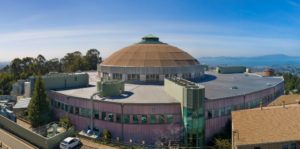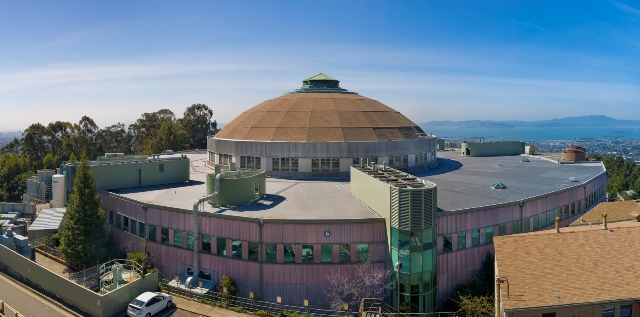 The National Institutes of Health (NIH) has awarded $6.5 million to Berkeley Lab to integrate existing synchrotron structural biology resources to better serve researchers. The grant will establish a center based at the Lab’s Advanced Light Source (ALS) called ALS-ENABLE that will guide users through the most appropriate routes for answering their specific biological questions.
The National Institutes of Health (NIH) has awarded $6.5 million to Berkeley Lab to integrate existing synchrotron structural biology resources to better serve researchers. The grant will establish a center based at the Lab’s Advanced Light Source (ALS) called ALS-ENABLE that will guide users through the most appropriate routes for answering their specific biological questions.
Paul Adams, director of Berkeley Lab’s Molecular Biophysics & Integrated Bioimaging (MBIB) division, is principal investigator on the grant, and will oversee the center’s administrative core. ALS-ENABLE has three technology operations cores to address specific needs: rapid response crystallography led by Corie Ralston (MBIB); high quality and high throughput small angle X-ray scattering led by Greg Hura (MBIB); and specialized crystallography led by James Holton (MBIB/UCSF). Jay Nix, beamline director for the Molecular Biology Consortium at ALS, will lead user training and outreach efforts.
Other co-investigators on the grant are James Fraser, an associate professor in the Department of Bioengineering and Therapeutic Sciences at UCSF, and John Tainer, an MBIB visiting scientist and a professor of Molecular & Cellular Oncology at the University of Texas MD Anderson Cancer Center. Additional ALS-ENABLE personnel include: Kathryn Burnett (MBIB), Scott Classen (MBIB), Michal Hammel (MBIB), George Meigs (MBIB), Banumathi Sankaran (MBIB), and Jane Tanamachi (Biosciences Operations).
Read more in the Berkeley Lab News Center.




